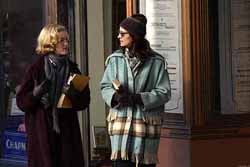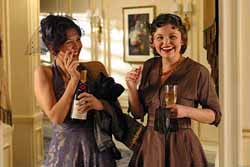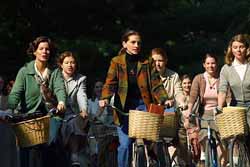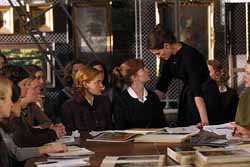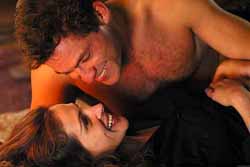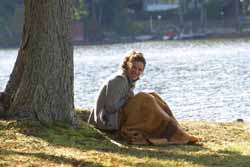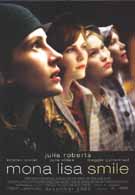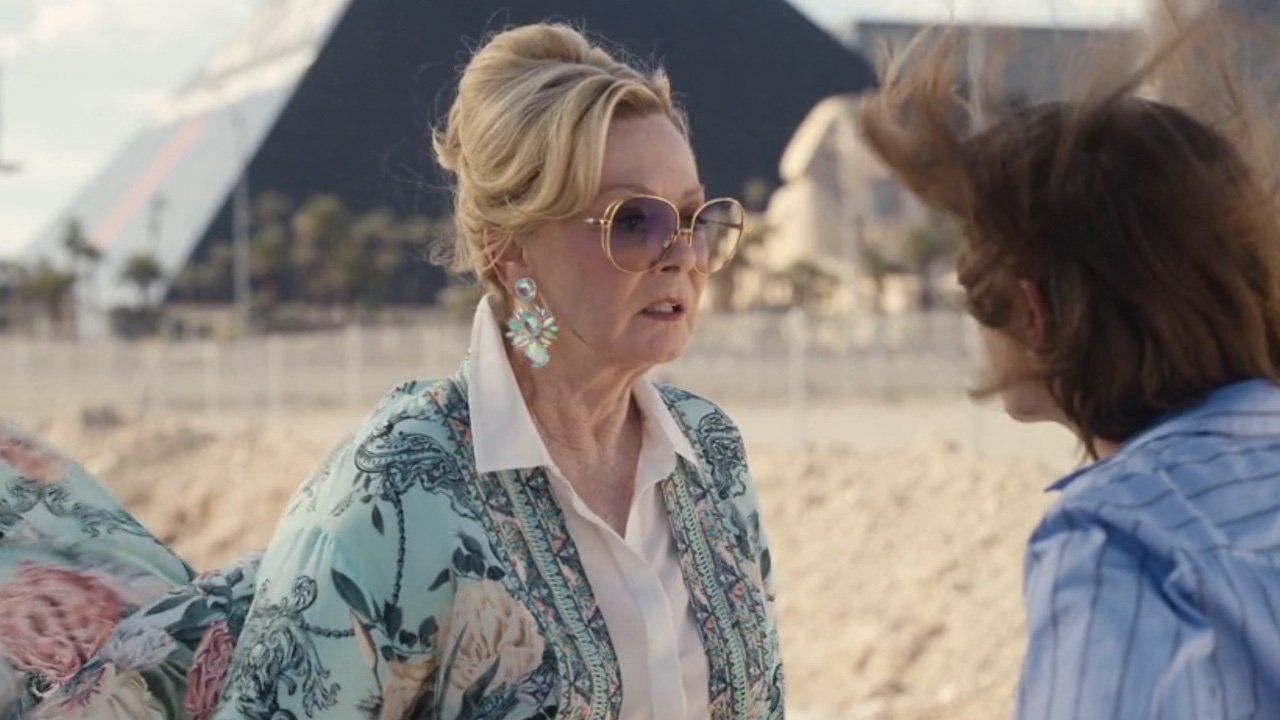Mona Lisa Smile is a bland little movie, our annual rip-off of Dead Poets Society arriving just in time to land on critics' 2003 voting ballots. Last year, it was Kevin Kline that filled that position with his teacher student drama The Emperor's Club. This year it is Julia Roberts' turn.
She stars as Katherine Watson, a character best described as Julia Roberts if she traveled through time, landing in 1953 to teach impressionable young college girls how best to be like her. That's my description, but the movie insists on explaining her as a idealistic young art history teacher (is there any more useless subject?) who in 1953 transfers from Berkeley to a stuffy women's college and preaches women's lib. Personally, I'm not buying it. The time machine just makes more sense.
What makes the time machine seem so plausible, is that unlike everything else around her in the movie, Roberts fails to sell herself as anything other than a modern day woman. While young actresses Maggie Gyllenhaal, Kirsten Dunst, Julia Styles, and Ginnifer Goodwin are busting their humps to portray real 1950's women, a product, to varying degrees of their time and environment, Roberts plays herself. News flash: Women didn't act like Julia Roberts in 1953. Granted, a UC Berkeley graduate is going to be a bit more progressive than stodgy rich girls attending a stodgy rich college whose primary aim seems to turn out wives with good birthing hips... but even a liberal minded progressive like Katherine Watson should get at least SOME of her identity from the time period in which she lives. Watson seems oblivious to her era.
Making that all the more frustrating, is that around her in this film is an honest attempt to capture a specific type of 50's culture. Watson isn't much of a teacher and spends all of five minutes actually in the classroom in this movie (and it must have been one helluva five minutes, because invariable she changes all her students outlook on life), so that leaves plenty of time to see her pupils interact with the world of ideal 50's life and more importantly, the expected roles of women in that time specific society. Except for Kirsten Dunst's annoying tendency to come off as an over the top, cartoonish, screaming villain, this works quite well. If only we didn't have to keep cutting back to Roberts', so she can not teach any art history and instead brainwash her students into copying her kickin millennium attitudes.
Aside from the teacher/student thing, there's the usual romantic subplot involving Julia and her Mona Lisa leading man. He has a weird habit of comparing her to the DaVinci painting for which the movie is named. No explanation is ever given for why he does so, unless I missed it. But if it was there it went by fast because I asked three other people on the way out of the theater if they got it, thinking that they couldn't possibly have forgotten to include something so important to the movie in there, and they hadn't. Then towards the end Ms. Watson starts flashing around pictures of the Mona Lisa, as if as time ran out, someone suddenly realized that in order to justify the movie's name they should throw more Mona Lisa related stuff into the mix. I'm still not sure what the point of it is.
That's symptomatic if just about everything in Mona Lisa Smile. It feels as if someone took a blunt editing hatchet to the film a few weeks before they printed it and shipped it out to theaters. Characters have these weird sudden turnarounds for no particular reason. People make inexplicable decisions, seemingly just because the script requires it. Maybe Julia Roberts' time travel somehow disrupted the space time continuum, thus forever altering Mona Lisa Smile's pace? For everything in this flick, time travel is the only credible explanation.
